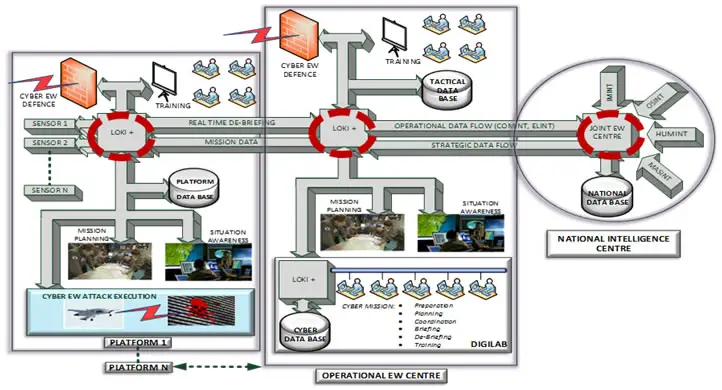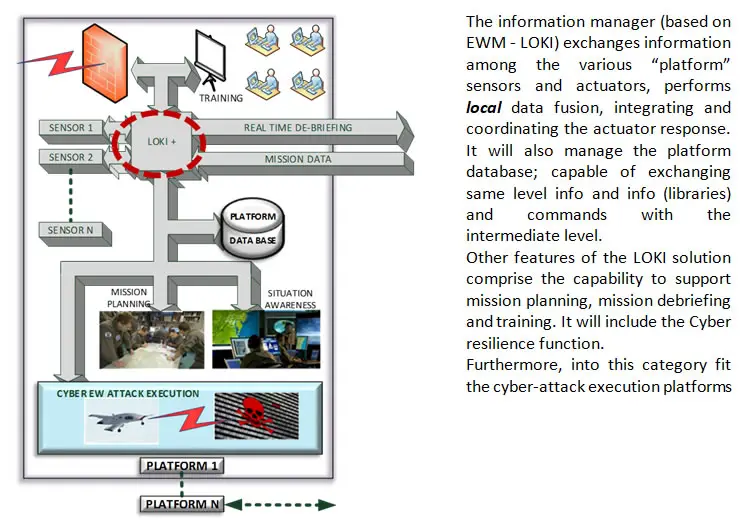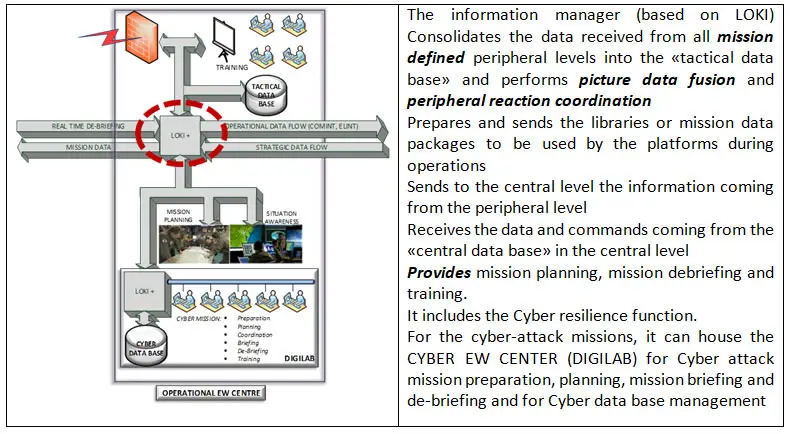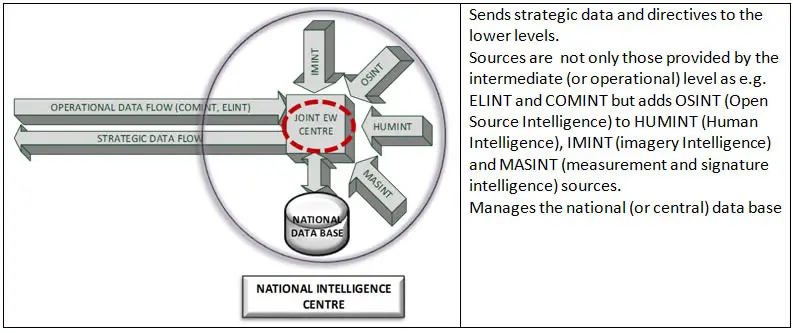Breaking news
Electronic Warfare: A lead actor in networked operations.
Elettronica advertorial
The needed EW layer for real time awareness and reaction in the Maritime Arena
By Daniela Pistoia and Cristina von Beckh Widmanstetter
From the Naval to the Air Superiority
In the 15th-16th century it was all about naval supremacy. Typical actors were the Portuguese vessels in the Indian Ocean and Ottoman Turks in the Mediterranean,only to mention some, that raided and bent to submission coastal cities for complete sea route and market dominion.
20th century technology slowly but inexorably brought in the omnipotent ad undisputed air dominance that has conditioned most conflicts’ outcome until very recently.
Many world’s armed forces have reasoned and have defined their military organizations (air, sea and land), their concepts of operation and their doctrines, strongly conditioned by the air superiority key.Common to all is the worthy strategic, operational and tactical maneuvers rational.

Today’s Scenariosand the Maritime arena
Today, instead, we are also subject to:
Fuzzy or non-existent FEBA lines, Hybrid warfare, Rogue Enemies, terrorism and globalized asymmetric conflicts, Homeland Security vulnerability; asymmetric technology deployed in military and urban scenarios (IEDs, IMS band mini UAVs), newer platforms as unmanned vehicles, an overcrowded Electromagnetic spectrum (EMS),new threats as HEMP (High Energy Electromagnetic Pulse) and DEW (Direct Energy Weapons).
The air superiority multiplying factor is not the main or only guide line.
The maritime arena has been impacted by all the above mentioned threats. Besides the traditional blue and littoral water threats and scenarios we have to consider the need to protect and neutralize direct attacks to harbors& anchorages, offshore energy infrastructures, choke points, naval units, patrolling and maritime interdiction operations.
Furthermore, we must remember that around 90% of world trade is carried by the international shipping industry. Intertwined in these open, well surveilled and controlled activities, are smuggling, piracy, harbor attack, illegal immigration, illegal fishing and maritime terrorism. These work easily undetected in the enormous vastness of the sea, ignoring or fooling the navigation aids and awareness systems.
Are we back in the 16th century? Is the worthy strategic, operational and tactical maneuvers rational in discussion?
No....absolutely not..... but perhaps we should do things a bit differently.
The Electromagnetic Spectrum Dependence and Dominance
We are not in the 16th century because today we can count on technology that supports capable solutions that include EM spectrum sensors and effectors on any possible manned/unmanned, surface/air platform and a cyberspace network that links all.
Air, land, sea, space and cyberspace operations increasingly depend on the EMS access. This is a contested resource.The control of the Electromagnetic spectrum is adamant.
Therefore,
• we must be efficient, using the minimum amount of EM resources to accomplish the required mission;
• we must be flexible and adaptable to exploit the various opportunities to access the spectrum (multi band operation), increasing the ability to share spectrum with other systems (domestic or foreign federal or non-federal, becoming more tolerant of interference and
• we must be agile to achieve mission success in a rapidly changing EW environment.
Information Warfare and the Hybrid conflicts
It is not about naval, air or land dominance any more but about information dominance. The information warfare has spread to many new areas of possible exposure and exploitation, unfamiliar in the traditional cold war conflicts. It is typical in the recently termed hybrid conflicts.
• Open source information and artificial analysis (big data) provide key data on the enemy
• Fake news for public opinion and diplomatic manipulation,
• Psy Ops
• Economic damage
• Corruption
• Propaganda
Getting the right information to the right people (or equipment) at the right time: Elettronica’s approach for a better EW information exchange layer
Getting the right information to the right people (or equipment) at the right timeis the key issue in the described stages.
Today we are counting on many artificial intelligence tools that allow a cognitive quasi real-time situation awareness and quasi real-time reaction capability.
We must also assure an optimized information flow in the strategic/operational/tactical information layers.The following paragraphs describe how faster and optimized EW and other sensor information exchange can be implemented.
In the maritime and coastal environments this means exchanging EW information faster with other (land, coastal and sea based) sensors and actuators of the same tactical level.
ELETTRONICA’s LOKI and the NEC Architecture
To assure the needed vertical and horizontal interoperability in the strategic –operational - tactical layers of maneuver, three different versions of LOKI’s information management products apply. These are defined for the so called peripheral, intermediate (or operational) and central levels.

The peripheral level is applicable to a “platform” or what we define as the smallest interactive EW unit. The innovation is that this platform could be an aircraft, or a swarm of UAVs, or a number of unmanned sensors and Jammers, closely linked as in a set of distributed sensors and /or actuators, etc., where information is exchanged in real time. In a maritime surveillance example, a platform will be a UAV carrying EW sensors, a MPA aircraft, a set of buoys with EW sensors or effectors protecting the entrance of a harbor, a set of coastal EMS sensors, a set of land GBAD sensors and effectors, etc.

The intermediate level acts as the intermediary between the peripheral and central level. The innovation is the needed fast tactical EW information exchange (in near real time) among different platforms (air and surface based). This is the level that allows all EW sensors of the same level, from different platforms to contribute to the overall picture and response.

The Central Level (for strategic operations) is applicable to a Joint EW level (JEWC) or could be any national intelligence center. Information exchange is slow or off line. The innovation of the information management system (based on LOKI +) is that the sources of information include non-traditional ones.

CONCLUSIONS
LOKI is Elettronica’s EW and EMS innovative information management solutions. These are designed to be implemented guaranteeing the needed EWM real time awareness and reaction capability in the scenarios that we encounter today. The key feature is the architecture that allows horizontal and vertical information exchange in strict respect of the needed time requirements and compatible with the military strategic-operational-tactical information layer rational.
About the authors
Daniela Pistoia has a degree in Electronic Engineering and a diploma for Executive Management. In 1988 she began her career at Alenia Marconi Systems as an Engineer for Missile Systems and led the company’s RF Sensor Simulation and Design Studies. Having worked from 2000-2002 as the Head of Advanced Concepts and System Studies in the Seeker Division of MBDA, she joined Elettronica (ELT) in 2003. As Vice President for Research and Advanced Systems Design, she developed and managed ELT’s product portfolio related to cyber, EW, radar and electro-optical systems. Since 2013 she has been appointed as ELT Corporate Chief Scientist and Head of Product Innovation & Advanced EW Systems. She is author of numerous technical research papers and a regular speaker at international events.
Cristina von Beckh Widmanstetter has a magna cum laude Degree in Electronic Engineering from the University of Rome and has been working in EW from the start.Growing up and enjoying HW/SW design for ESM, ECM core Modules (video/microwave interface/digital/analogue) as a fresh graduate, has led to senior roles in Technical Marketing, Market Intelligence and Business Development in Elettronica SpA.
She is now member in Elettronica’s Engineering EW, Cyber and Cognitive Capabilities group. Currently Team Leader of the EW and Cyber subgroup of the NATO Study Group SG-220: GBAD Operations in the 21st Century.


























